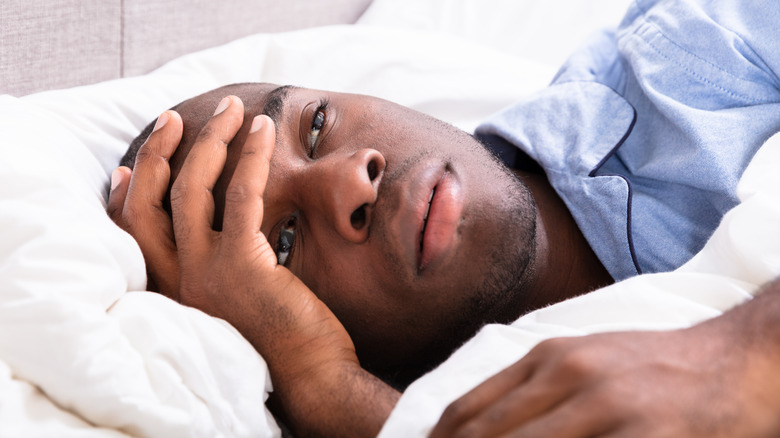How Long Does Mono Fatigue Last?
Over 3 million mononucleosis infections are diagnosed annually in the U.S., reports Mercy Health. Referred to as "mono" for short, MedicineNet defines the condition as "a contagious infection most commonly caused by a herpes virus called Epstein-Barr (EBV)." While anyone is susceptible to infection, adolescents and young adults ages 15 to 25 are among those most prone.
Most known for inducing extreme fatigue, other symptoms of the infection can include fever, sore throat, body aches, swollen lymph nodes of the neck or armpits, weakness, swelling in the liver or spleen, or a loss of appetite (via MedicineNet). Mononucleosis is also nicknamed "the kissing disease" due to the fact that transmission can occur through the exchange of saliva, as well as through coughing, sneezing, sexual contact, blood transfusions, the sharing of utensils, and more.
It's not always easy to differentiate between a case of mono or another energy-zapping illness. Therefore, to confirm a diagnosis, doctors may utilize blood tests to check for EBV antigens or changes in blood cell numbers (via Mercy Health). If diagnosed with mono, for how long can you expect fatigue symptoms to linger?
Mono fatigue may last longer than other symptoms
While mononucleosis symptoms often begin to subside within two to four weeks, the fatigue may linger for a period of two to three months, or in some cases, as long as six months (via MedicineNet). Even if you start feeling better, be aware that you may still be contagious for several months after the fact, per Mercy Health.
Experts at MedicineNet say it's important to rest and stay hydrated while recovering from a case of mono. In addition, be sure to routinely wash your hands with soap and water for 20 seconds or more in order to help reduce the spread of infection to others. Body aches or fever may accompany recovery, so over-the-counter (OTC) pain relievers, such as Tylenol or Advil, are suggested. If you're experiencing a sore throat, cough drops or gargling with warm salt water can help relieve the discomfort.
Lastly, you'll want to hold off on engaging in any intensive physical activity for at least two to three months following infection, such as weight lifting (via MedicineNet). Because mononucleosis can cause swelling of the liver or spleen, a sports-related injury or overexerting yourself during exercise can put you at risk for spleen rupture.


